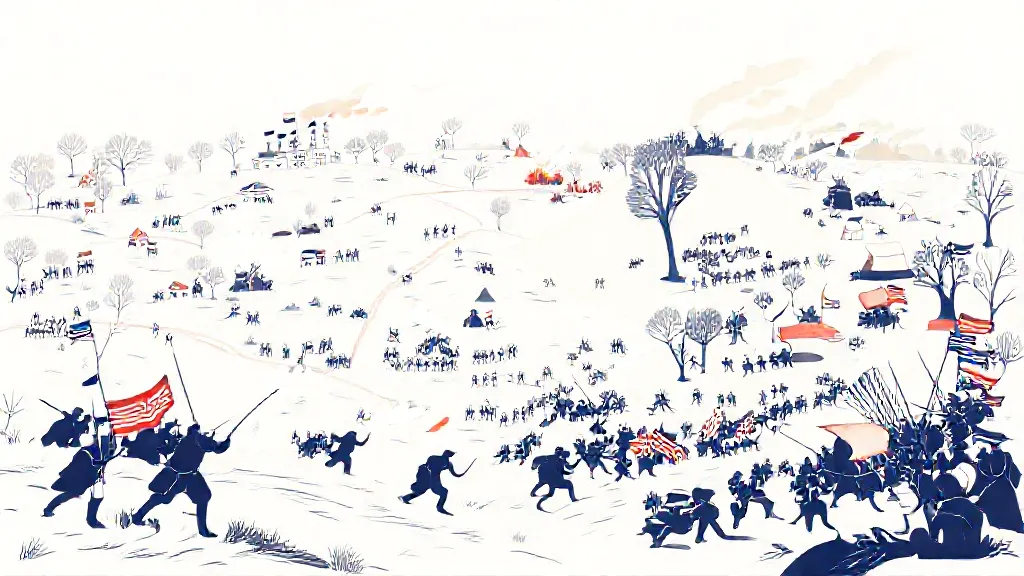The American Revolutionary War, fought between 1775 and 1783, was a pivotal conflict that led to the independence of the thirteen American colonies from British rule. This article delves into the major battles of this war, highlighting their significance, outcomes, and impacts on the course of American history. Understanding these battles is crucial for grasping the complexities of the revolutionary struggle and the emergence of the United States as an independent nation.
The Battles of Lexington and Concord: The Spark of Revolution
The Revolutionary War began on April 19, 1775, with the Battles of Lexington and Concord. These skirmishes were the first military engagements between the British troops and colonial militias. The British aimed to seize colonial arms and arrest revolutionary leaders, but the colonial forces, alerted by Paul Revere's famous midnight ride, successfully defended their positions.
The phrase "the shot heard 'round the world" signifies the importance of this battle, as it marked the start of open conflict and galvanized colonial resistance against British authority.
Bunker Hill: A Symbol of Determination
The Battle of Bunker Hill, fought on June 17, 1775, was one of the early and most well-known battles of the war. Although technically a British victory, the heavy casualties inflicted on the British troops demonstrated the resolve and fighting capability of the colonial forces.
The phrase "Don't fire until you see the whites of their eyes" exemplifies the strategic discipline of the colonial militia. This battle served to boost the morale of the American forces and proved that they could stand up to the might of the British army.
Saratoga: The Turning Point of the War
The Battles of Saratoga, occurring in September and October 1777, are often regarded as the turning point of the Revolutionary War.
The American victory here convinced France to formally ally with the colonies, providing crucial military support. The surrender of British General John Burgoyne to American General Horatio Gates marked a significant shift in the war's momentum. The success at Saratoga not only bolstered American morale but also secured international recognition for the revolutionary cause.
Yorktown: The Final Major Engagement
The Siege of Yorktown in 1781 marked the last major battle of the Revolutionary War. American and French forces, under the command of General George Washington, laid siege to British General Cornwallis's troops. The successful encirclement and subsequent surrender of Cornwallis on October 19, 1781, effectively ended major military operations in the war.
This victory solidified American independence and demonstrated the effectiveness of the colonial alliance with France, leading to negotiations for peace.
The Role of Naval Battles
While land battles often dominate discussions of the Revolutionary War, naval engagements were also critical. The Battle of Chesapeake in 1781, for instance, was a decisive naval battle that prevented British reinforcements from reaching Cornwallis at Yorktown.
The contributions of the Continental Navy and privateers disrupted British supply lines and trade, showcasing the importance of maritime strategy in the overall war effort. These naval skirmishes played a vital role in shaping the outcomes of land battles.
The Impact of Guerilla Warfare
Throughout the Revolutionary War, guerrilla tactics were employed by colonial militias, particularly in the southern theater.
Leaders like Francis Marion, known as the "Swamp Fox," utilized hit-and-run tactics to disrupt British supply lines and communication. This unconventional warfare proved effective in wearing down British forces and contributed to the eventual American victory. Understanding the role of guerrilla warfare highlights the adaptability and resourcefulness of the colonial fighters.
Legacy of the Revolutionary Battles
The major battles of the Revolutionary War left a profound legacy that extends beyond military strategy. They fostered a sense of unity among the colonies and laid the groundwork for the establishment of democratic principles in the United States. The ideals of liberty and self-governance that emerged from these conflicts continue to resonate in American society today.
The sacrifices made during these battles are commemorated in various forms, including monuments, reenactments, and educational programs.
Further Reading and Resources
For those interested in exploring the Revolutionary War in greater depth, numerous resources are available. Books such as "1776" by David McCullough and "The Glorious Cause" by Ron Chernow provide insightful narratives of the war's events and figures.
Additionally, visiting historical sites like the Battle of Bunker Hill Monument or the Saratoga National Historical Park offers a tangible connection to this transformative period in American history. Online resources, including the Library of Congress and the National Park Service, also offer valuable information and educational materials.
